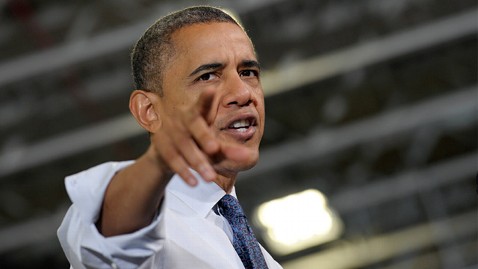CAIRO (Reuters) - Egypt's President Mohamed Mursi called a December 15 referendum on a draft constitution on Saturday as at least 200,000 Islamists demonstrated in Cairo to back him after opposition fury over his newly expanded powers.
Speaking after receiving the final draft of the constitution from the Islamist-dominated assembly, Mursi urged a national dialogue as the country nears the end of the transition from Hosni Mubarak's rule.
"I renew my call for opening a serious national dialogue over the concerns of the nation, with all honesty and impartiality, to end the transitional period as soon as possible, in a way that guarantees the newly-born democracy," Mursi said.
Mursi plunged Egypt into a new crisis last week when he gave himself extensive powers and put his decisions beyond judicial challenge, saying this was a temporary measure to speed Egypt's democratic transition until the new constitution is in place.
His assertion of authority in a decree issued on November 22, a day after he won world praise for brokering a Gaza truce between Israel and the Palestinian Islamist Hamas movement, dismayed his opponents and widened divisions among Egypt's 83 million people.
Two people have been killed and hundreds wounded in protests by disparate opposition forces drawn together and re-energized by a decree they see as a dictatorial power grab.
A demonstration in Cairo to back the president swelled through the afternoon, peaking in the early evening at least 200,000, said Reuters witnesses, basing their estimates on previous rallies in the capital. The authorities declined to give an estimate for the crowd size.
"The people want the implementation of God's law," chanted flag-waving demonstrators, many of them bussed in from the countryside, who choked streets leading to Cairo University, where Mursi's Muslim Brotherhood had called the protest.
Tens of thousands of Egyptians had protested against Mursi on Friday. "The people want to bring down the regime," they chanted in Cairo's Tahrir Square, echoing the trademark slogan of the revolts against Hosni Mubarak and Arab leaders elsewhere.
Rival demonstrators threw stones after dark in the northern city of Alexandria and a town in the Nile Delta. Similar clashes erupted again briefly in Alexandria on Saturday, state TV said.
"COMPLETE DEFEAT"
Mohamed Noshi, 23, a pharmacist from Mansoura, north of Cairo, said he had joined the rally in Cairo to support Mursi and his decree. "Those in Tahrir don't represent everyone. Most people support Mursi and aren't against the decree," he said.
Mohamed Ibrahim, a hardline Salafi Islamist scholar and a member of the constituent assembly, said secular-minded Egyptians had been in a losing battle from the start.
"They will be sure of complete popular defeat today in a mass Egyptian protest that says 'no to the conspiratorial minority, no to destructive directions and yes for stability and sharia (Islamic law)'," he told Reuters.
Mursi has alienated many of the judges who must supervise the referendum. His decree nullified the ability of the courts, many of them staffed by Mubarak-era appointees, to strike down his measures, although says he respects judicial independence.
A source at the presidency said Mursi might rely on the minority of judges who support him to supervise the vote.
"Oh Mursi, go ahead and cleanse the judiciary, we are behind you," shouted Islamist demonstrators in Cairo.
Mursi, once a senior Muslim Brotherhood figure, has put his liberal, leftist, Christian and other opponents in a bind. If they boycott the referendum, the constitution would pass anyway.
If they secured a "no" vote to defeat the draft, the president could retain the powers he has unilaterally assumed.
And Egypt's quest to replace the basic law that underpinned Mubarak's 30 years of army-backed one-man rule would also return to square one, creating more uncertainty in a nation in dire economic straits and seeking a $4.8 billion loan from the IMF.
"NO PLACE FOR DICTATORSHIP"
Mursi's well-organized Muslim Brotherhood and its ultra-orthodox Salafi allies, however, are convinced they can win the referendum by mobilizing their own supporters and the millions of Egyptians weary of political turmoil and disruption.
"There is no place for dictatorship," the president said on Thursday while the constituent assembly was still voting on a draft constitution which Islamists say enshrines Egypt's new freedoms.
Human rights groups have voiced misgivings, especially about articles related to women's rights and freedom of speech.
The text limits the president to two four-year terms, requires him to secure parliamentary approval for his choice of prime minister, and introduces a degree of civilian oversight over the military - though not enough for critics.
The draft constitution also contains vague, Islamist-flavored language that its opponents say could be used to whittle away human rights and stifle criticism.
For example, it forbids blasphemy and "insults to any person", does not explicitly uphold women's rights and demands respect for "religion, traditions and family values".
The draft injects new Islamic references into Egypt's system of government but retains the previous constitution's reference to "the principles of sharia" as the main source of legislation.
"We fundamentally reject the referendum and constituent assembly because the assembly does not represent all sections of society," said Sayed el-Erian, 43, a protester in Tahrir and member of a party set up by opposition figure Mohamed ElBaradei.
Several independent newspapers said they would not publish on Tuesday in protest. One of the papers also said three private satellite channels would halt broadcasts on Wednesday.
Egypt cannot hold a new parliamentary election until a new constitution is passed. The country has been without an elected legislature since the Supreme Constitutional Court ordered the dissolution of the Islamist-dominated lower house in June.
The court is due to meet on Sunday to discuss the legality of parliament's upper house.
"We want stability. Every time, the constitutional court tears down institutions we elect," said Yasser Taha, a 30-year-old demonstrator at the Islamist rally in Cairo.
(Additional reporting by Marwa Awad, Yasmine Saleh and Tom Perry; Editing by Myra MacDonald and Jason Webb)










